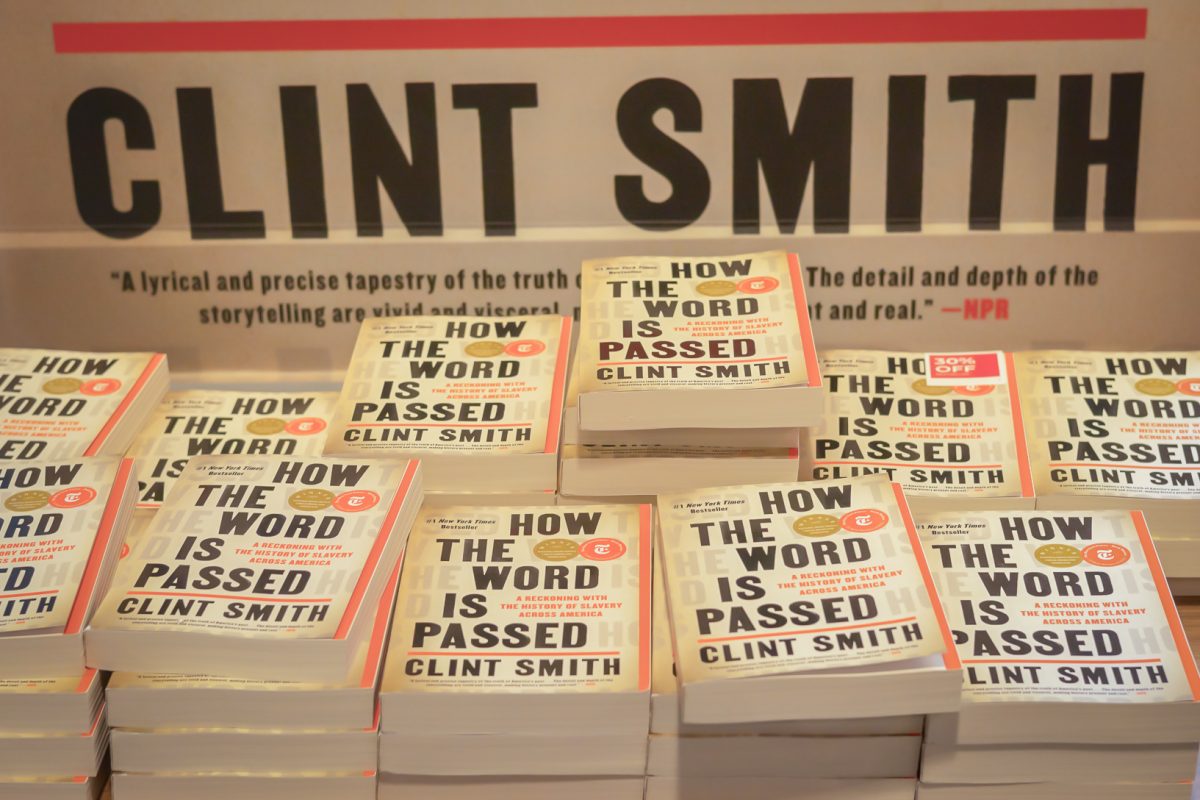Award-winning author Clint Smith sat down with Interim Provost Georgina Dopico to discuss his 2021 book, “How the Word Is Passed: A Reckoning with the History of Slavery Across America,” on Sept. 18. Smith’s book was chosen this year for NYU Reads — a universitywide program for incoming students to foster conversation centered around a chosen text.
“How the Word Is Passed” explores the lasting impact of slavery, from the aspects that have been memorialized to the ones that are often forgotten in U.S. history. In his book, Smith travels to nine different historical locations where the effects of slavery continue to linger.
At the event, Smith discussed young people’s responsibility to fight for justice, even if they might not experience its effects themselves.
“It’s almost like we’re chipping away at this wall, right?” Smith said. “You don’t know if the wall is six inches thick or 6,000 miles thick, but you know the more you chip away, the less the people after you will have to.”
Smith also spoke about how people he encountered while writing his book sometimes had contrary beliefs to his own. Through the project, Smith said he was able to learn more about the people he interacted with and himself.
“My projects are born not from a place of expertise, but of curiosity,” Smith said. “The journey of writing helps me search for understanding within myself.”
Smith is currently a staff writer at The Atlantic, as well as the writer behind the award-winning poetry book “Counting Descent” and another work of poetry titled “Above Ground.” Smith’s “How The World Is Passed” was the winner of the 2021 National Book Critics Circle Award for Nonfiction.
In an interview with WSN, Smith discussed what he wants readers to take from his book.
“Ultimately, I hope this is just a catalyst or a microcosm for a much larger commitment that individual students and community members will take on in their own lives,” Smith said.
Tisch sophomore Kaia Poorboy said that the book made her reflect on the history of her Indigenous culture.
“Just reading this book, I was like, ‘What if I went back?’” Poorboy said. “ I started looking at how my people had to deal with the first settlers coming into America and with colonization.”
Smith said that he enjoyed listening to and responding to questions from students and spoke on the benefits of the NYU Reads program.
“We don’t read because it has a specific utilitarian benefit to our professions or careers,” Smith said during the interview. “We read because reading is one of the ways that we get a clearer sense of the world we live in and who we are in relation to the world we live in.”
Contact Aashna Miharia and Yasmeen Rifai at [email protected].


























































































































































